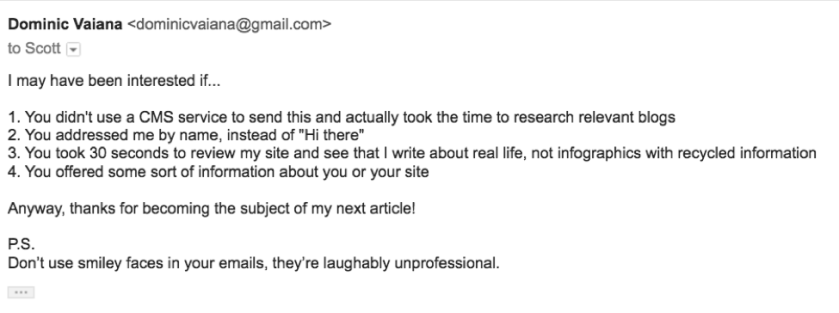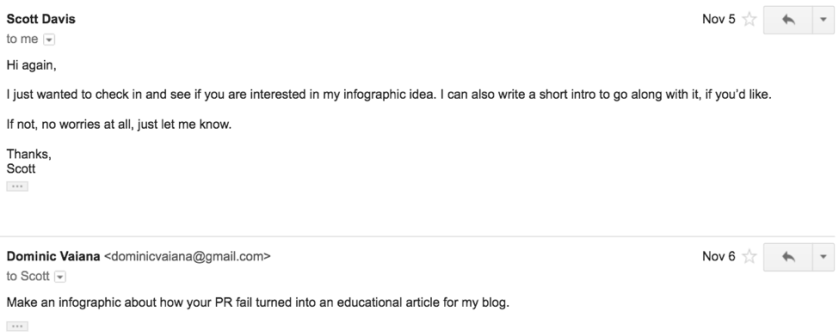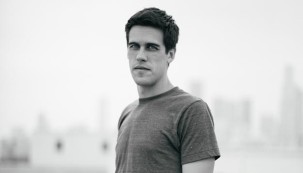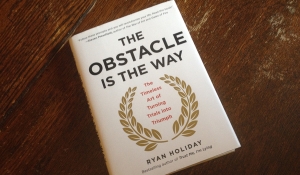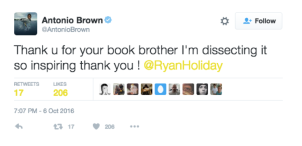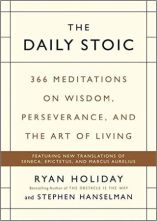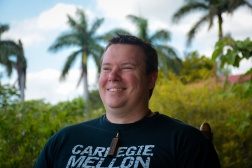 Many people claim to be writers, but few are as immersed in the craft as James Ranson. A writer and editor for over 18 years, James has partnered with several publishing experts to create The Master Wordsmith, a team that turns ideas into profitable masterpieces. He is also an editor for Tucker Max’s Book in a Box publishing group. In addition to working on several Wall Street Journal and Amazon bestselling books, James has edited multiple articles for The Huffington Post and Good Men Project, among other sites. I’ve been fortunate to have James as a resource over the past months, and I’m happy to share some of the lessons he’s taught me. I recently interviewed James – here is our conversation.
Many people claim to be writers, but few are as immersed in the craft as James Ranson. A writer and editor for over 18 years, James has partnered with several publishing experts to create The Master Wordsmith, a team that turns ideas into profitable masterpieces. He is also an editor for Tucker Max’s Book in a Box publishing group. In addition to working on several Wall Street Journal and Amazon bestselling books, James has edited multiple articles for The Huffington Post and Good Men Project, among other sites. I’ve been fortunate to have James as a resource over the past months, and I’m happy to share some of the lessons he’s taught me. I recently interviewed James – here is our conversation.
It seems like some of the greatest writers, both past and present, don’t necessarily choose to become writers. Their experiences take them on an indirect path where they stumble upon writing. Did you set out to be a writer or has it been a complex process?
Definitely a complex process. When I was a kid I dreamed of being a fantasy author like Brian Jacques or Terry Brooks, but for many years after that I wanted to be a professional singer. It wasn’t until halfway through college that I realized I loved performing in groups way more than performing as a soloist, and that while all my other singer friends were treating voice and acting practice as a break from other work, I was treating them as work that I took breaks from to read books. So while I kept singing in groups for fun, I started moving back in the direction of writing as a career, which led me to everything from publishing an academic paper at a national conference, to writing grants for three opera companies, to building up a freelance editing business into The Master Wordsmith’s current state, and even starting to write my own (nonfiction) books.
A fear exists among young adults that they can’t make a career out of writing anymore. What are your thoughts on this?
Well, it’s tough to make a career out of writing the way our parents did, that’s for sure. Being a professor in academia, a reporter for a newspaper, a book/music/film reviewer, an editor in a publishing company, or even a book author–these things don’t work the way they used to. Many of those industries are dead or dying, many of them have way more applicants than there are jobs or opportunities, and many of them don’t provide full-time jobs with benefits anymore at all. But that doesn’t mean that you can’t find or build a writing career, only that you need to look at it from a different angle. I know several people who make good money writing articles for websites, or sales copy to help businesses sell their products. I also know many businesspeople and entrepreneurs who have used writing to grow their businesses, either by writing blogs, guest posts, books, or all of the above. The big difference now is that instead of writing something first and then trying to find people to read it, most successful present-day writers first find people who either need things written or need a written solution to their problems, and then write the things those people need to read. That takes some work, and often a significant mindset shift, but it’s very doable.
What are some tactics that people can implement to make their own writing more compelling?
1. Tell stories. No one wants to hear me talk about the five reasons you need to hire a great editor, but everyone will sit up and listen when I remember the time a prospective client was in tears on the phone with me because three different bad editors had screwed up her book draft and she didn’t believe it was any good anymore.
2. Read your writing out loud before anyone else sees it. If it doesn’t SOUND good, it won’t read well.
3. Clarity is king. Never assume that just because YOU understand something, your audience will understand how you write about it. As Denzel Washington said in the film Philadelphia: “Explain it to me like I’m a six-year-old.”
4. Write about things you’re excited about! Readers can tell when you’re writing bored almost as easily as cops can tell when you’re driving drunk.
5. Work with the best damn editor you can afford. If that means buying your English major roommate a six-pack every week, do it. If it means paying someone like me four or five figures, do it. Don’t fall into the trap of choosing quick and cheap editing for the sake of saving time or money. You’ll have to take more time and pay more money to fix a bad editing job later.
What is your most valuable trait as a writer?
I call myself The Master Wordsmith professionally because it sounds impressive and authoritative, and because I coach and guide people to create masterpiece books. But I also chose that name because it reflects one of my great writing talents: I know words intimately. I’ve spent two decades mastering them. Finding the right word, the most compelling description, the clearest explanation, the most commanding message, are like muscle memory for me. And most of my clients tell me that my words (and/or edits) say what they wanted to say, the way they wanted to say it, but better than they could have said it themselves. This ability, I believe, is what has made me most successful as an editor and ghostwriter.
What can we expect from James Ranson within the next year or so?
I just finished the first draft of my first book, called Buy Once, Cry Once: How Shortcuts Cost You In The Long Run. That will come out in early October. I also have a couple other books in the works, one about how A-students can become successful entrepreneurs, and one about a two-year road trip I took around the US, and I ultimately plan on writing 12 books on 12 different topics as quickly as is practical to still write well. I’ll also continue growing The Master Wordsmith, ideally taking on half a dozen full-package book creation clients in 2017. Other than that, I just finished visiting the lower 48 states of the US, so I’m looking forward to NOT traveling much for a while, hahaha.
I always include book recommendations in my newsletter. What are a few books that you personally recommend?
Nonfiction:
The Happiness of Pursuit, by Chris Guillebeau (actually anything by Chris is awesome), Break Through Your BS, by Derek Doepker, On Writing Well, by William Zinnsser, Better Than Before, by Gretchen Rubin, Level Up Your Life, by Steve Kamb
Fiction: The Dresden Files series, by Jim Butcher, The Phantom Tollbooth, by Norton Juster, Ready Player One, by Ernest Cline
Where can people learn more about you?
Website: themasterwordsmith.com
Facebook: masterwordsmithjames
Twitter: @themasterwords
Email: masteryourwords@gmail.com
Dominic Vaiana studies writing and media strategy at Xavier University. He founded a campus newspaper and later went on to advise, ghostwrite, and edit for colleagues and startups. His biweekly newsletter with his personal articles, essays, interviews, and book recommendations, can be found here. For any questions or comments, email dominicvaiana@gmail.com.

